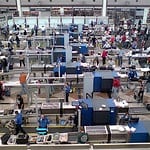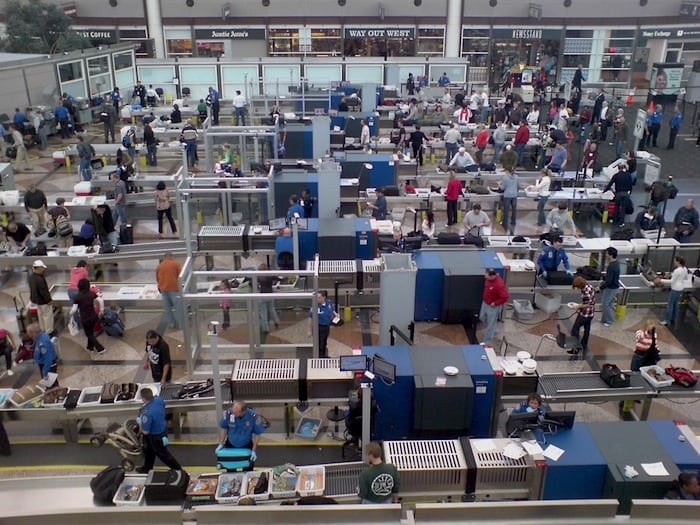Skift Take
The distance between dreaming and doing is far, but after a decade of radical changes to the flying experience both airports and airlines should be ready to settle down and think bigger about their challenges.
Airport security needs to undergo a radical overhaul or else passengers will become further disgruntled, lines will grow and terminals will be overwhelmed, airline executives said Tuesday at a global aviation conference.
“We simply can’t cope with the expected volume of passengers with the way things are today,” said Tony Tyler, director general and CEO of the International Air Transport Association, the airlines’ trade group.
Tyler spoke at an airlines conference held in Abu Dhabi, the capital of the United Arab Emirates.
He predicted that by 2020, governments will be using a “checkpoint of the future” where passengers can race though without stopping, removing clothing, or taking liquids and laptops out of bags.
While a lot of work has to be done to get numerous counties and regulators on board, Tyler is optimistic that today’s “one-size-fits all approach to screening” can be replaced with a system based on individual passenger risk. The industry hopes to test the concept at a handful of airports starting late 2014.
The example cited by Tyler and airline executives of what is working: the U.S. Transportation and Security Administration’s relatively new PreCheck program.
Frequent fliers who voluntarily share more information with the government get to keep their shoes, belts and light jackets on at security. The program will be expanded to 35 airports by the end of the year.
“If you are willing to share a little more information, then you can have a much better experience,” John S. Pistole, head of the TSA, told the conference. “We can then spend more time on those we know the least about.”
The additional personal information would most likely be handed over voluntarily to the government by passengers who see the benefit of the time savings.
Pistole said the TSA would ideally like to analyze passengers’ travel history and patterns but currently lacks Congressional authority to do so. Any such changes would occur after the election, at the earliest, he said.
“I applaud the TSA. I never thought I would say it because they are the worst part of travel,” said Montie Brewer, former CEO of Air Canada.
James E. Bennett, who used to head the Washington Airport Authority and is now CEO of the Abu Dhabi Airports Co., said that if the current immigration and security procedures remain in place as more and more passengers take to the skies, airports will run out of terminal space to hold all the lines.
Many airports have already undergone multi-million dollar retrofits to house additional security and there isn’t additional room left.
The ultimate challenge may not be developing the technology but having multiple nations agree on uniform procedures.
“We cannot continue to build and build and build to provide space for the existing systems and queues.” Tyler said. “The whole inconsistency destroys the credibility.”
Scott Mayerowitz can be reached at http://twitter.com/GlobeTrotScott. Copyright (2012) Associated Press. All rights reserved. This material may not be published, broadcast, rewritten, or redistributed. ![]()
The Daily Newsletter
Our daily coverage of the global travel industry. Written by editors and analysts from across Skift’s brands.
Have a confidential tip for Skift? Get in touch

